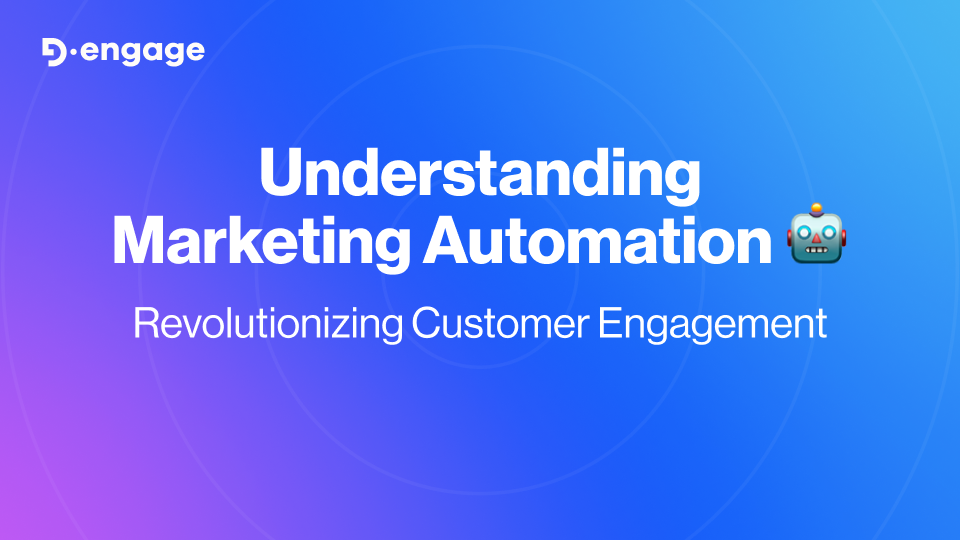Marketing automation has emerged as a cornerstone of modern digital marketing strategies, empowering businesses to streamline processes, enhance customer engagement, and drive revenue growth. In an era defined by rapid technological advancements and evolving consumer behaviors, understanding the intricacies of marketing automation is paramount for staying competitive in the digital landscape. Let’s embark on a journey to unravel the essence of marketing automation, exploring its definition, functionalities, and profound impact on businesses worldwide.
What is Marketing Automation?
At its core, marketing automation refers to the use of software platforms and technologies to automate repetitive marketing tasks, streamline workflows, and deliver personalized experiences to customers at scale. From email marketing and lead nurturing to campaign management and customer segmentation, marketing automation encompasses a wide array of functionalities designed to optimize marketing efforts and drive measurable results.
According to a study by Career Foundry, 91% of marketers believe that marketing automation is vital to the success of their marketing campaigns, underscoring its significance in today’s digital landscape.
“Marketing automation empowers businesses to deliver the right message to the right audience at the right time, fostering meaningful engagements and driving tangible results.” – Career Foundry
Key Components of Marketing Automation
1. Lead Management and Nurturing
Central to marketing automation is the ability to capture, qualify, and nurture leads throughout the customer journey. By leveraging automation workflows and personalized content, marketers can guide prospects through the sales funnel, nurturing them with relevant information and targeted messaging until they are ready to make a purchase.
2. Email Marketing Automation
Email remains one of the most effective channels for engaging customers and driving conversions. Marketing automation platforms enable marketers to automate email campaigns, segment audiences based on demographics and behavior, and deliver personalized content that resonates with recipients.
3. Campaign Management and Optimization
With marketing automation, marketers can streamline campaign management processes, from planning and execution to tracking and analysis. By leveraging data insights and analytics, businesses can optimize marketing campaigns in real-time, adjusting strategies and allocating resources for maximum impact.
4. Customer Segmentation and Personalization
Effective personalization is a hallmark of successful marketing automation strategies. By segmenting audiences based on demographics, interests, and buying behavior, marketers can tailor content and offers to resonate with specific customer segments, driving higher engagement and conversion rates.
5. Measurement and Reporting
Marketing automation platforms provide robust analytics tools for tracking and measuring the performance of marketing campaigns. From click-through rates and conversion metrics to ROI analysis, businesses gain actionable insights that inform strategic decision-making and drive continuous improvement.
Industry Insights and Trends
According to TechRadar, the global marketing automation market is projected to reach $25.1 billion by 2023, reflecting a compound annual growth rate (CAGR) of 14.3%. This exponential growth underscores the increasing adoption of marketing automation solutions by businesses across various industries.
“Marketing automation is no longer a luxury but a necessity for businesses seeking to drive growth and stay competitive in the digital age.” – TechRadar
Furthermore, a survey conducted by Digital Marketing Institute revealed that 77% of businesses have reported an increase in conversions as a result of implementing marketing automation strategies. This tangible impact on business outcomes reaffirms the transformative potential of marketing automation in driving revenue growth and enhancing customer satisfaction.
Future Outlook and Conclusion
As technology continues to evolve and consumer expectations evolve, the future of marketing automation holds immense promise for businesses seeking to unlock new opportunities and drive sustainable growth. With advancements in AI, machine learning, and predictive analytics, marketing automation platforms will become increasingly sophisticated, enabling businesses to deliver hyper-personalized experiences and anticipate customer needs with unprecedented accuracy.
In conclusion, marketing automation represents a paradigm shift in how businesses engage with customers, optimize marketing efforts, and drive business growth. By harnessing the power of automation, businesses can elevate their marketing strategies to new heights, fostering meaningful connections with customers and achieving sustainable competitive advantage in the digital era.
Embrace the power of marketing automation and embark on a journey towards unparalleled customer engagement, revenue growth, and business success.
